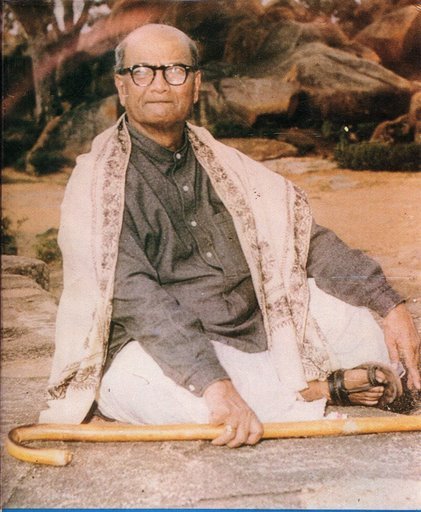Devanahalli Venkataramanaiah Gundappa(D.V. Gundappa / DVG)
Philosopher, poet, journalist, and guide of modern Kannada literature. His wisdom, humility, and vision continue to inspire generations of readers and students of Indian philosophy.

1887 – 1975
Born
March 17, 1887
Birthplace
Mulbagal, Kolar, Karnataka, India
Padma Bhushan, Sahitya Akademi Award
Padma Bhushan, Sahitya Akademi Award
Masterpiece
Mankutimmana Kagga
DVG was a giant of Kannada literature, whose works bridge ancient Indian wisdom and modern life. His legacy is one of humility, service, and profound philosophical insights that continue to guide readers today.
Early Life & Education of D.V. Gundappa
Born in Mulbagal, Kolar district, DVG grew up in a family that valued learning and culture. His early education was shaped by traditional Indian thought and the vibrant intellectual environment of Mysore, laying the foundation for his future contributions to Kannada literature and Indian philosophy.
He was a keen observer of society from a young age, and his curiosity led him to explore literature, philosophy, and public affairs. These formative years laid the foundation for his lifelong quest for knowledge and service to Kannada literature and Indian philosophy.
Literary Career & Journalism of D.V. Gundappa
DVG began his career in journalism, founding and editing several Kannada newspapers and magazines. His sharp intellect and commitment to truth made him a respected voice in public discourse and Kannada literature.
As a writer, DVG produced a vast body of work spanning poetry, essays, biographies, and philosophy. His writing is known for its clarity, depth, and accessibility, making complex philosophical concepts understandable to all readers.
Major Works of D.V. Gundappa
about.dvg.mankuthimmanaKaggaDesc
A sequel to Kagga, published posthumously, continuing the tradition of wisdom poetry and philosophical insights that characterize DVG's literary style.
Memoirs offering a vivid portrait of early 20th-century Karnataka and its personalities, providing valuable insights into the cultural and intellectual milieu that shaped DVG's work.
A celebrated commentary on the Bhagavad Gita, awarded the Sahitya Akademi Award in 1967, demonstrating DVG's deep understanding of Indian philosophy and spiritual literature.
Poems on the lives and emotions of women in royal households, showcasing DVG's sensitivity to human emotions and his ability to capture the essence of human experience.
Essays on the four aims of human life: dharma, artha, kama, and moksha, reflecting DVG's comprehensive understanding of Indian philosophical traditions.
His first poetry collection, featuring pen portraits of national leaders and reformers, marking the beginning of DVG's distinguished literary career.
Pioneering works in Kannada biography, reflecting DVG's interest in politics and public life, and his commitment to documenting the lives of important figures in Indian history.
Philosophy & Legacy of D.V. Gundappa
DVG's philosophy was rooted in the belief that life is a divine play, to be lived with cheerfulness, humility, and a sense of service. He emphasized the importance of dissolving the ego, honoring human aspirations, and working for noble causes - themes that permeate his Mankutimmana Kagga.
His legacy endures in the countless lives he touched, the institutions he founded, and the literature he enriched. DVG's works are studied in schools and universities across Karnataka, and his influence is felt in Kannada culture and beyond, making him a cornerstone of Indian philosophy and literature.
"ಮಂಕುತಿಮ್ಮನ ಕಗ್ಗದಲ್ಲಿ ಜೀವನದ ಎಲ್ಲಾ ಸತ್ಯಗಳಿವೆ"
All truths of life are contained in Mankutimmana Kagga
Explore DVG's Wisdom in Mankutimmana Kagga
Discover the profound wisdom of D.V. Gundappa through his masterpiece, Mankutimmana Kagga. Each of the 945 verses contains timeless insights that are as relevant today as they were when written, making it essential reading for students of Kannada literature and Indian philosophy.